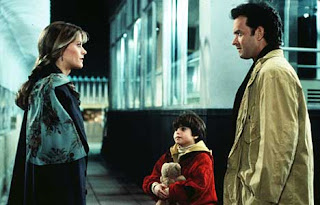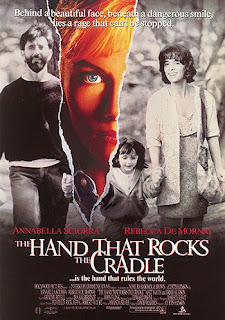A Midsummer Night's Dream
Written by William Shakespeare
Directed by Sanford Robbins
Where: Thompson Theater at the Roselle Center for the Arts
(University of Delaware, Newark, DE)
When: Friday, December 3, 2010
At the start of the University of Delaware's Resident Ensemble Players (REP)/Professional Theater Training Program (PTTP)'s season, I was a little worried. The combination of the professional actors and the students wasn't quite gelling. However, with last month's Our Town and December's all-too-brief run of William Shakespeare's A Midsummer Night's Dream, any and all of my anxieties about the mix of the two troupes have been quashed. Granted it's been probably a decade since I've last seen a Shakespearean play performed live, but what I saw opening night was a group of actors (and a director) who made the Bard's lighthearted words resonate in a world that no longer speaks using "thou" and "thus."
Going into this play, I felt like I needed to study for it. I've always felt that way with Shakespeare, whether it be when watching a movie or play based on his works. For this experience, I popped in the dvd of the 1999 version of the play (a review will be forthcoming). While I enjoyed the flick, I wasn't overly enthused by the material. [I don't really remember reading the play in my college Shakespeare class, but I very well might have and didn't remember it.] In particular, I felt that the last act in which a motley crew of workmen put on a play for the upper class bourgeiosie (for lack of a better word) fell terribly flat.
Somehow, much to my amazement, watching the last act performed onstage this evening was like a complete 180-degree turn from the film. It worked...and it worked surprisingly well, providing many laugh-out-loud moments, particularly thanks to the wonderful performance from Stephen Pelinski as the weaver Bottom (but more on the acting in a bit). Seeing Shakespeare performed live adds an extra dimension to his words that we don't get in film. The communal experience of watching it with others (as Shakespeare would have wanted) elevates the dialog to another level.
Of course, I'm sure that not every Shakespearean stage production works, but this one does in part because of the wonderful actors from both the REP and the PTTP who now work so well together that it's difficult to even tell the difference between the two troupes. As mentioned above, REP actor Stephen Pelinski becomes the star of the show -- of course, it helps that Bottom is a showy role and the most comedic of the bunch. Pelinski manages to make Shakespearean humor resonate with a modern audience thanks to his inflections and mannerisms. Also stellar are PTTP performers Jasmine Bracey and Ben Charles as Hippolyta/Titania and Philostrate/Puck, respectively. I singled both these actors out in my review of Our Town and I'll do the same here. Bracey takes on her duel roles with gusto and strength that is necessary to make her characters believable (or as believable as a headstrong fairy queen can be). Charles gets to show off his acrobatic skills in ways that I won't spoil here, but this role is a completely different one from his George in Our Town and it once again shows what I love about the REP/PTTP theater experience -- watching the same group of actors inhabit incredibly different roles from one production to the next. Kudos also to the REP's Mic Matarrese and the PTTP's Sara Griffin and Matthew Simpson for delivering stand-out performances.
With some wonderful costuming (as is seemingly customary in these UD shows) and a lovely scenic design by Takeshi Kata which, while minimalist in some ways, is perhaps the most beautiful and avant garde of any REP production yet, the technical aspects continue to shine here. My only real qualm with the production is that as I sat in the back row of the balcony, I did miss a bit of the action that took place on a cleverly extended T-shaped stage. Perhaps moving the "cap of the T" a row closer to the stage would have solved the problem, but that's just a minor quibble. In the end, the movement that the extended stage allowed the actors to achieve is a credit to the director Sandy Robbins.
Once again, as I tend to always say when I discuss these REP productions at the University of Delaware, we've got real theater right here in our backyard. Real theater the likes of which you'd see up on Broadway. Get thee to a REP production and see for yourself the caliber of acting, direction, and design on display because you really won't regret it.




























